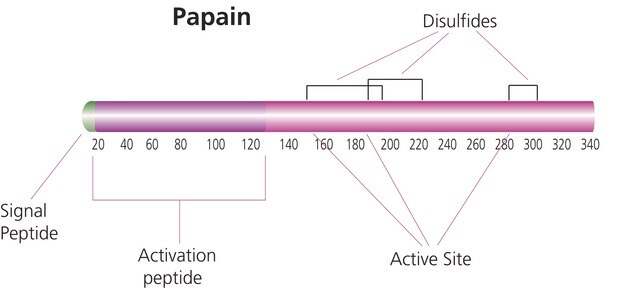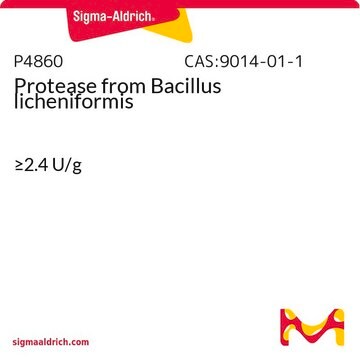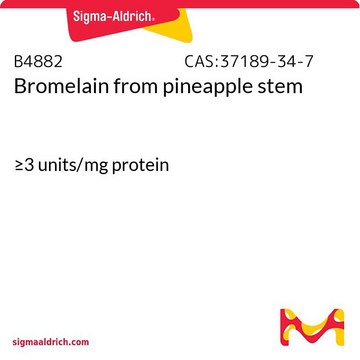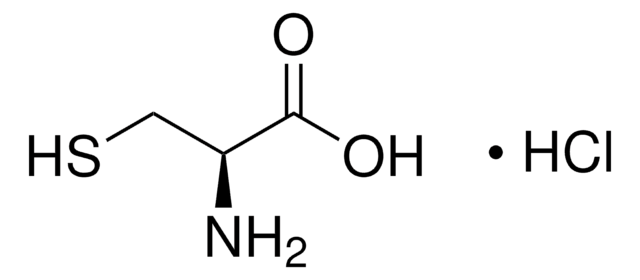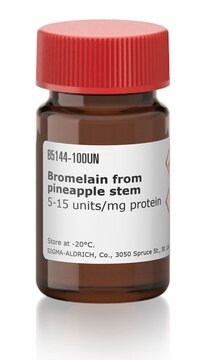76216
Papain from Carica papaya
solution, light brown, ≥10 U/mg protein (~25 mg/ml)
About This Item
Recommended Products
biological source
papaya
form
solution
specific activity
≥10 U/mg protein (~25 mg/ml)
mol wt
Mr ~23000
technique(s)
cell culture | mammalian: suitable
single cell analysis: suitable
color
light brown
storage temp.
2-8°C
Looking for similar products? Visit Product Comparison Guide
General description
Application
- in the enzymatic dissociation of rat cortices to extract astrocytes for cell culture
- to study its effects on Alpaca seminal plasma viscosity and sperm function
- to study its effects on the yield and cryo-survival of Rhinoceros spermatozoa
Biochem/physiol Actions
Unit Definition
Signal Word
Danger
Hazard Statements
Precautionary Statements
Hazard Classifications
Eye Irrit. 2 - Resp. Sens. 1 - Skin Irrit. 2 - STOT SE 3
Target Organs
Respiratory system
Storage Class Code
11 - Combustible Solids
WGK
WGK 1
Flash Point(F)
Not applicable
Flash Point(C)
Not applicable
Personal Protective Equipment
Certificates of Analysis (COA)
Search for Certificates of Analysis (COA) by entering the products Lot/Batch Number. Lot and Batch Numbers can be found on a product’s label following the words ‘Lot’ or ‘Batch’.
Already Own This Product?
Find documentation for the products that you have recently purchased in the Document Library.
Customers Also Viewed
Our team of scientists has experience in all areas of research including Life Science, Material Science, Chemical Synthesis, Chromatography, Analytical and many others.
Contact Technical Service
